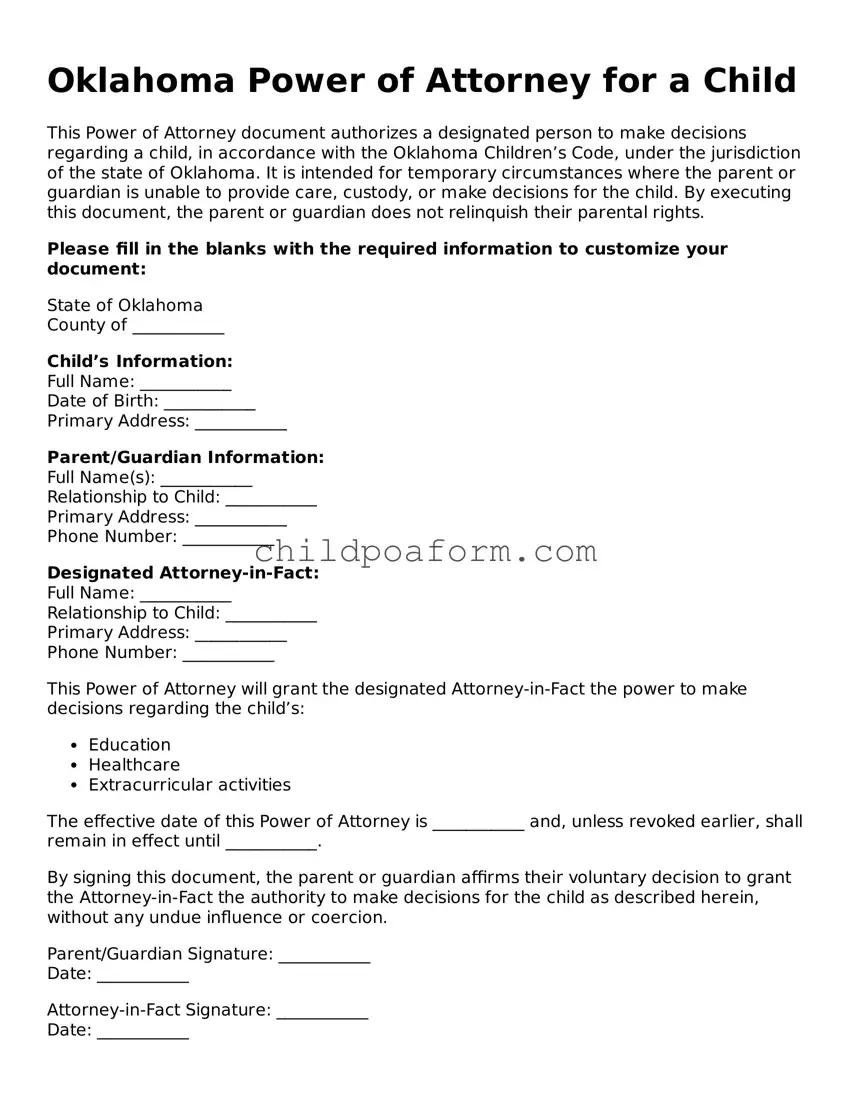Instructions on Utilizing Oklahoma Power of Attorney for a Child
Granting someone the power to act on behalf of your child is a significant step that ensures your child's needs are met when you're unable to do so yourself. The Oklahoma Power of Attorney for a Child form is designed to facilitate this process, allowing a parent or guardian to authorize another individual to make decisions and perform certain legal acts for their child. Completing this form appropriately ensures that the designated person has the authority needed to care for your child in various situations, from medical decisions to educational commitments. Here are the straightforward steps to fill out the Oklahoma Power of Attorney for a Child form correctly.
- Gather all necessary information, including the full legal names and addresses of the parent(s), the child, and the appointed attorney-in-fact (the individual given authority).
- Read through the form carefully to understand the scope of authority being granted.
- Enter the date the power of attorney will become effective.
- Fill in the section that identifies the parent(s) or legal guardian(s), the child, and the appointed attorney-in-fact, including their respective contact details.
- Specify the powers being granted to the attorney-in-fact. This may involve decisions related to the child's education, health care, and general welfare.
- Indicate the duration of the power of attorney. If it is to remain in effect indefinitely, specify the conditions under which it will terminate, such as the child reaching a certain age or the parent revoking the power of attorney.
- Both the parent(s) or legal guardian(s) and the attorney-in-fact must sign the form in the presence of a notary public. Ensure that this signing is done correctly, as the form requires notarization to be legally valid.
- Have the form notarized. This typically involves showing identification to the notary, signing the form in their presence, and having them affix their official seal or stamp.
- Make copies of the notarized form. Keep the original in a safe, accessible place, and provide a copy to the attorney-in-fact as well as any institutions or individuals who may require it, such as schools or healthcare providers.
Filling out the Oklahoma Power of Attorney for a Child form is a clear process that can be completed without legal assistance if the instructions are followed closely. By doing so, a parent ensures that their child is cared for by someone they trust, even in their absence. It's a responsible action that provides peace of mind, knowing that arrangements are in place for the child's well-being.
